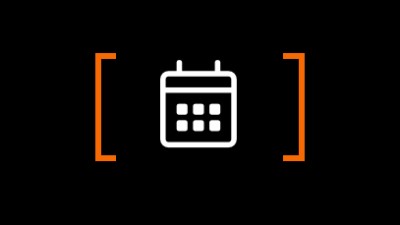Building Bridges | October 2017
- RIT /
- Diversity and Inclusion /
- Newsletters /
- October 2017 /
- Building Bridges

We have all heard that expression before.
However, no matter the frequency with which we hear it, faculty and staff often continue to be caught off-guard or surprised by the undercurrents of the shifting cross-cultural, racial, ethnic, gender, international (etc.) realities which are increasingly observed or experience in our offices, classrooms, and our worlds. When they occur, these experiences often leave us with a sense of being unprepared, confused or helplessness.
Thus, they can leave faculty and staff with the feeling of an adrenaline-charged risk that in turn, prevents faculty or staff from: asking questions; taking action; or seeking help – all to avoid unwittingly saying or enacting a response that is perceived as insensitive or biased.
Consequently, it is imperative that we find a safe environment by which to discuss these charged dynamics in a constructive or educational manner, with professional and neutral facilitators. Unless this occurs, the awkwardness and fear to discuss these issues only spirals down and exacerbates the lack of understanding that should not plague an institution of higher education.
Bridges, is a multicultural competency certificate program that was designed as a cornerstone professional education opportunity for RIT faculty and staff to help address these issues and build interrelations in the process.
The classes which comprise this program serve as a way of helping faculty and staff to remain current in their conceptual knowledge of diverse populations, as well as to collaborate in the development of strategies by which they can create inclusive environments which maximize student learning, respect, and personal development – for all students.
The program is comprised of five concentrated themes, each one a different certificate:
- Group Communications: Inclusive Approaches
- Group Dynamics and Diversity
- Ally Development
- Sustainability and Social Change
- Unconscious Bias
Each certificate (and each program with the certificate) has its own learning outcomes, and on average, lasts approximately two hours. The program is open only to faculty and staff – and while completion of the certificates is encouraged, people may sign up for most individual course offerings. In a number of the programs, professionals from across the university have been recruited to help facilitate the program, with author, and program director, Dr. Michael D’Arcangelo.
Since its inception in 2012, the cumulative enrollment for Bridges has reached 676, based upon a core group of individuals equaling 439. Evaluation of the programs have been consistently very good. For example, on a five point scale (five being the highest rating; 1 being the lowest), twenty-five participants who attended, Ally Development 1, ranked aspects of the program in the following manner:
- The program was a valuable use of time;
- 4.62/5.00 rating;
- The method of presentation was appropriate and effective.
- 4.40/5.00 rating.
Participants’ also provided comments along several value-based aspects, such as: “Something you learned” … and “How you can apply it to your job.” Their comments included such sentiments as:
- “[Learned] sensitivity to different groups & strategies to approach them.”
- “Further identifying the aspects of ‘ally’ were very helpful.
- “Uses cases or a strategy to explore issue.”
- “This was a great combination with my current grad class where we are discussing different student and identity development.”
At a modern university, diversity issues should be celebrated, but this is more likely to occur only when faculty and staff can be fully understand the nature and strategies of dealing with diversity. Beginning to talk about these dealing in Bridges is a unique way to advance one’s knowledge and personal evolution in better understanding the world around them.
Bridges programs are held annually, and scheduled through the Center for Professional Development (CPD)
OR can be brought to the faculty and/or staff meetings of different departments and colleges upon request. Diversity programs can also selectively be streamlined or tailored to meet the needs of various units, upon special requests.
To view the full listing of diversity education programs for the 2017-2018 academic year please download our calendar here.



